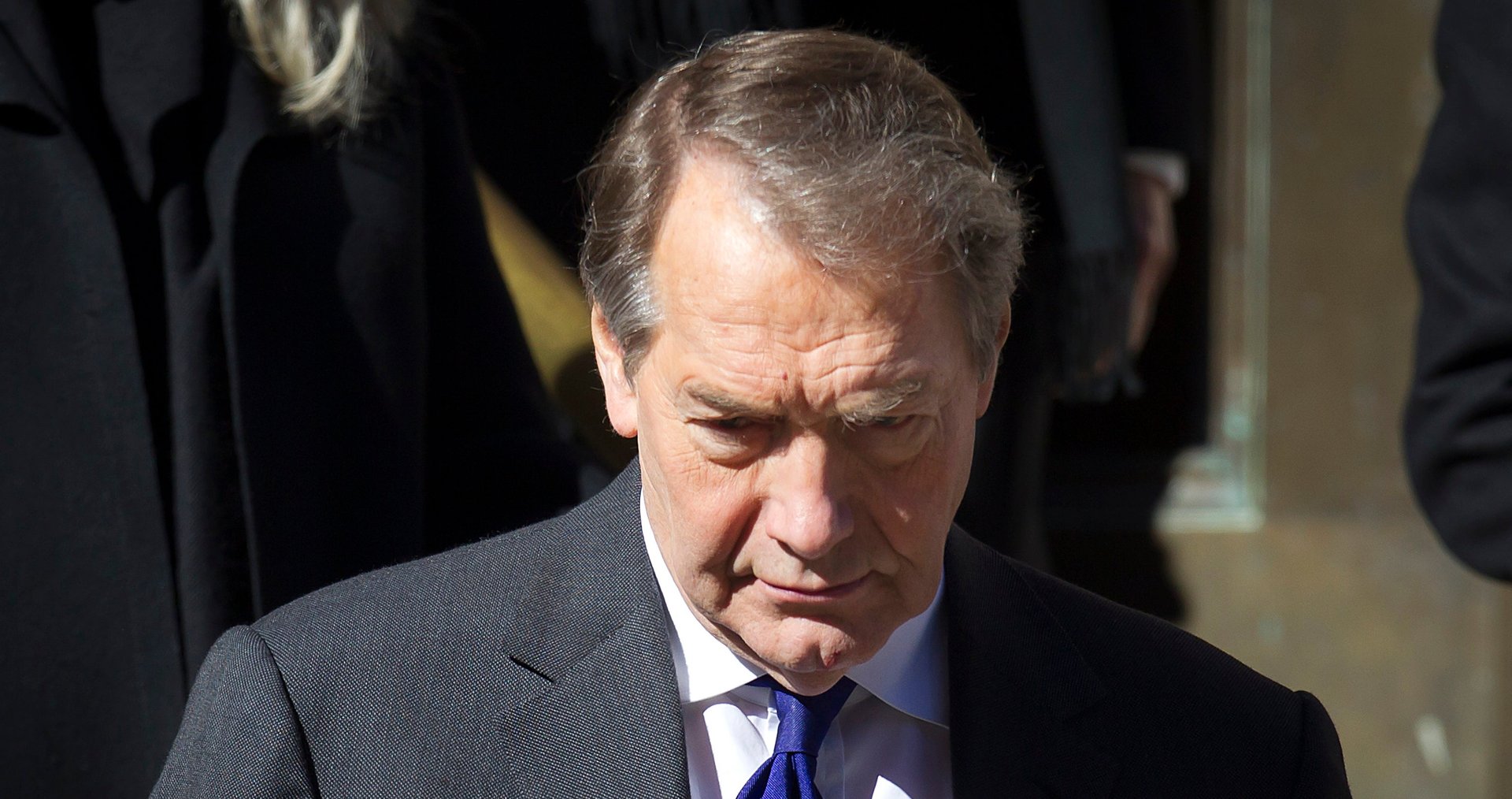The CBS News president’s email about firing Charlie Rose was almost perfect
Charlie Rose has been fired by CBS, the broadcast news company that employed him as a co-anchor on CBS This Morning. The announcement came just one day after his suspension in the wake of a Washington Post story about eight women who claim they were sexually harassed by him, with alleged behavior including lewd advances, groping, and appearing naked in front of them without consent.


Charlie Rose has been fired by CBS, the broadcast news company that employed him as a co-anchor on CBS This Morning. The announcement came just one day after his suspension in the wake of a Washington Post story about eight women who claim they were sexually harassed by him, with alleged behavior including lewd advances, groping, and appearing naked in front of them without consent.
While many of Rose’s colleagues have been shaken by the news, all who have spoken publicly about the alleged behavior have denounced it. “I’m not okay,” Gayle King, a co-anchor on CBS’s morning show, said on today’s broadcast. ”I’m really struggling because how do you—what do you say when someone you deeply care about has done something that is so horrible? … I’m really grappling with that. That said, Charlie does not get a pass here.”
CBS News president David Rhodes joined that denouncement a few hours later, with an email to his staff informing them of Rose’s termination:
Unlike the responses from many of the men accused of harassment in the past month, or from the companies that have employed, the response from Rhodes is unwavering, setting a powerful example for the managers and business leaders who inevitably will be called upon to send such messages in the future. (As for Rose, he disputed unspecified portions of the claims against him but apologized and said he was embarrassed by his behavior. You can read his full response to the allegations here.)
Rhodes’ memo about CBS News’ decision hits the mark on almost every account.
- It’s prompt. Rhodes and the rest of CBS News management acted quickly, denouncing Rose’s alleged behavior almost immediately after it was made public, and terminating him less than 24 hours later
- It does not prioritize Rose’s work or reputation over other employees’ safety. When an employee who is beloved and exalted by so many is accused of horrific behavior, it can be easy to defend that person by saying that such harassment “wasn’t my experience with him.” While Rhodes acknowledges Rose’s “important journalistic contribution to our news division,” he clearly states that “there is absolutely nothing more important, in this organization or any organization, than ensuring a safe, professional workplace.”
- It refuses to use “those were different times” as an excuse. As Harvey Weinstein’s absurd apology epitomized, justifying your sexual harassment by saying that norms were different in past decades is just absolute trash. Rhodes refutes this excuse by saying that “what may once have been accepted should not have ever been acceptable.”
- It invokes company values. The tragic irony of news organizations covering the recent tidal wave of sexual harassment allegations having their own personnel outed as sexual predators themselves—cough, NBC’s Mark Halperin, NPR’s Michael Oreskes—is embarrassing and unacceptable. As the president of one such news organization, Rhodes acknowledges that “our credibility in that reporting [on sexual harassment] requires credibility managing basic standards of behavior. That is why we have taken these actions.” Further, Rhodes’ admission of his own “deep disappointment” emphasizes the personal responsibility he feels for upholding respectable standards of conduct.
- It’s action-oriented. In the seemingly endless wake of sexual-harassment scandals, it’s easy to feel hopeless, and (regardless of your company’s HR policies) unsafe. Rhodes acknowledges that discomfort by reminding his employees of their right to support, and informing them that more sexual-harassment training will be administered.
However, Rhodes’ email misses one essential element: An acknowledgment that “what should not have ever been acceptable” includes the hiring, promoting, and celebrating of known—or even just suspected—predators by other powerful men.
Unsubstantiated stories about Rose’s behavior had been circulating for years. An employee at Quartz who never met Rose or his staff at The Charlie Rose Show recalls hearing rumors of his handsiness in the early 2000s when she worked in the building where Rose taped his show. Is it plausible that the senior media industry executives who knew Rose and enabled him were unaware of his reputation?
A spokeswoman for CBS denied that the network “had any knowledge of any claims of sexual harassment” against Rose. “We did not know.”
Perhaps not. But this “reckoning,” as CBS morning show co-anchor Norah O’Donnell referred to it, requires more than just women to stand up and tell their stories. It will even require more than the systematic abusers admitting fault. It will require a change in what is and is not acceptable to the powerful men—of which there are almost always many—who knew about or heard rumors of harassment and chose to ignore it, or just couldn’t see it, whether because of their fear of repercussions, their doubt of women, their general tolerance for abusive behavior by men, or their blind pursuit of good ratings.
Until powerful men begin admitting they have been complicit, knowingly or otherwise, in systemized assault and harassment by others, cultural tides and workplace dynamics will not fully shift.